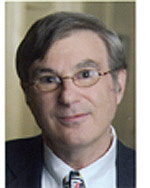The Philosophy of the Hebrew Scripture by Yoram Hazony, Cambridge University Press, New York; ISBN 978-0-521-17667-5 ©2012, $24.99, p. 273, plus notes and indices.
By Fred Reiss, Ed.D.

WINCHESTER, California –Placing the word “philosophy” next to the expression “Hebrew Scriptures” seems to be incongruous; after all, philosophy is about using reason to find “truths” to universal questions, while scripture is about miracles, revelation, and divine laws. Can the Bible stand up to the methods employed by philosophers? Yoram Hazony, an Israeli philosopher, political theorist, and now the President of the Institute for Advanced Studies at the Shalem Center, emphatically says yes,
The biblical philosophy suggested by Hazony in his newest book, The Philosophy of Hebrew Scripture, does not fit neatly into what is referred to as a formal philosophical framework. For example, Aristotle is known for Realism, Plato for Idealism, and Charles Pierce for Pragmatism. Biblical philosophy is more eclectic.
For Hazony, the overarching motif running through the Bible is the differing outlooks between the life of a farmer and the life of a shepherd, promulgated through what we know as biblical stories rather than abstract arguments. Some might consider this comparable to the stereotypical contention between rancher and farmer during the frontier days of the American West.
Consider Cain and Abel. Although God condemned mankind to eat bread by the sweat of his brow, that is, to become farmers, God prefers Abel’s blood sacrifice over Cain’s produce sacrifice, “a thesis that becomes the basis for the biblical authors’ theorizing not only about different human personality types, but also about competing systems of morality, political order, and approaches to God’s will.”
Philosophically, does the Bible assert that it is acceptable to challenge God’s will? Again, Hazony answers yes, there are times when challenging God is acceptable behavior: Abraham gives up farming to become a shepherd and challenges God over the meaning of justice and the fate of Sodom. Moses, who fleeing from the court of Pharaoh, becomes a shepherd, argues with God both before and after the Exodus, and in the end declares safety in the blood of a lamb smeared over the doorpost.
The philosophy of the Old Testament, according to Hazony, is spread out over two parts, the first, from Genesis through Kings, which he calls the History of Israel, written by scribes during the Babylonian captivity with the purpose of unifying the Hebrew nation around its heritage in order to avert assimilation, as had occurred a century and a half earlier when the Assyrians defeated and exiled the Northern Tribes of Israel, as well as to prepare them for the struggle to regain their homeland. The second part, the remaining books of the Bible, Isaiah to Second Chronicles, continues the philosophical discussions of Part One using stories whose philosophical conclusions were once understood by the Jews of the Babylonian Diaspora.
The portion called the History of Israel provides a broad framework for understanding divine law through a Hebrew Scriptural philosophy and offers everyone, Jew and non-Jew alike, “the prospect of ‘life and the good.’” To prove his points, Hazony looks at the various ways the Bible advances universal truths. Philosophers ask in so many words, “What is the proper way to live one’s life?” The Bible, according to Hazony, gives the answer that a free and independent life—the life of a shepherd—is a life worth living. He points to the biblical Judges refusing to become kings, declaring that God is the only king and the prophet Isaiah warning of the tyranny that will befall the people if they appoint a king, the predictions of which come true. Philosophers argue over “What is truth?” Plato argues that in this world, truth is an illusion. What about the Bible? According to Hazony, Jeremiah wrestled with this question, and he concludes, based on such references as Jeremiah 5:1-3, 6:16-19, and 8:6, that “every person is responsible for trying to establish the truth for themselves.”
Hazony, who finds universal truths throughout the Jewish Bible, makes a persuasive case and thus The Philosophy of Hebrew Scripture becomes a must read for those who want to leave the world of Bible stories for the realm of biblical Jewish philosophy.
*
Reiss is a retired public and Hebrew school teacher and administrator. He is the author of The Standard Guide to the Jewish and Civil Calendars; Ancient Secrets of Creation: Sepher Yetzira, the Book that Started Kabbalah, Revealed; and Reclaiming the Messiah. The author can be reached at fred.reiss@sdjewishworld.com.